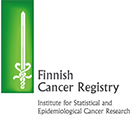Background 
Public health problem
Cancer is the second leading cause of death in Europe, with colorectal, breast and cervical cancer responsible for 20% of cancer mortality and approximately 250,000 deaths in the European Union (EU) each year. Each year more than a million European citizens are diagnosed with one of these three cancers. The burden of disease is unevenly distributed across countries in the EU and it is estimated that by 2050 the burden will grow by up to 50% due to population growth and ageing. Substantial progress has been made in the early detection and treatment of breast, cervical, and colorectal cancer: in many countries mortality has decreased by 1-2% per year since the early 1990s. However, great inequity persists in mortality trends. In addition, there is considerable debate about whether this mortality decline can be attributed to screening or improvements in treatment. Some have estimated that if all countries in the EU could reduce death rates to those in the best performing country, there would be over 4,000 fewer deaths each year from cervical cancer and 17,000 fewer from breast cancer.
Screening programmes
Breast, cervical and colorectal cancer are currently the only three cancers for which the European Council recommends screening. At present, all EU countries have some form of screening for breast and cervical cancer, and most countries have started to implement colorectal cancer screening. It has been estimated that 125 million EU-inhabitants could have been screened in 2007 if the screening tests had been available to, and had been utilised by all EU citizens of the target ages. However, in the same year, 55 million screening tests were actually performed. Successfully improving screening coverage would therefore potentially have an impact on the lives of millions of individuals, but at the same time put further pressure on the clinical and economic resources available. The 55 million screening tests alone are estimated to cost more than €500 million each year. In the light of the current economic crisis, it is especially important to ensure that this money is well spent and that citizens benefit optimally and equally well, if possible.









